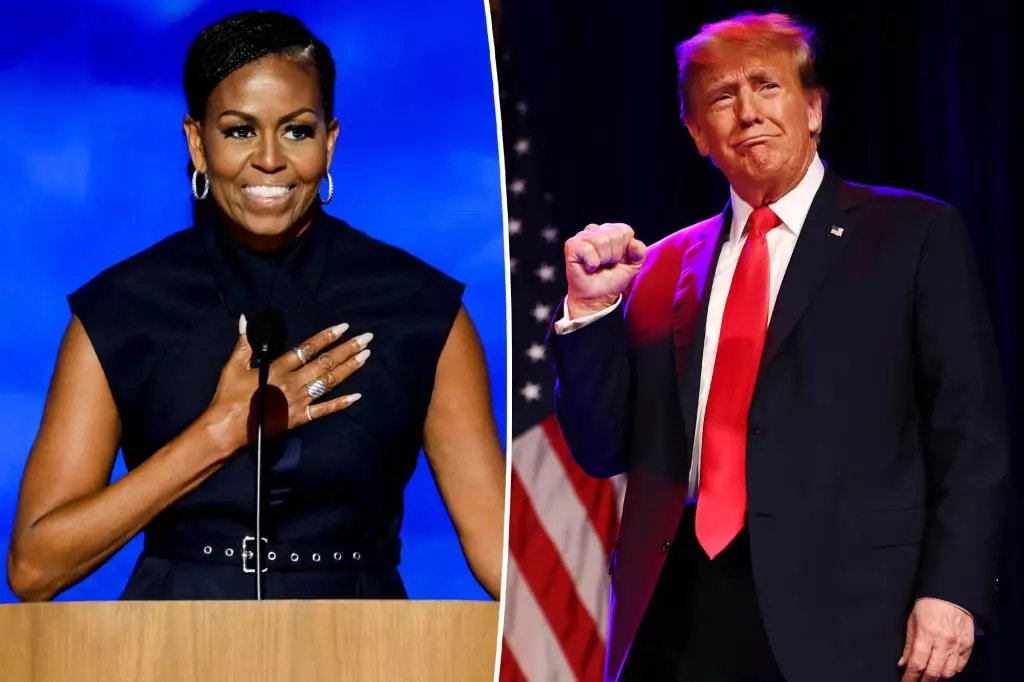Michelle Obama’s decision to skip Donald Trump’s inauguration has sparked widespread discussion, revealing much about personal convictions, political allegiances, and the complex dynamics of public figures in the realm of politics. This choice does not merely reflect her personal aversion to Trump but signals a deeper commentary on political authenticity and integrity.
Central to Michelle Obama’s absence is her commitment to authenticity. Those close to her have suggested that she values genuine expressions of support and dissent, and her non-attendance is a deliberate act that conveys her true feelings about Trump and his presidency. Michelle has cultivated a reputation over the years as someone who speaks her mind, whether advocating for public health, education reform, or civil rights. By choosing not to attend the inauguration, she reinforces the notion that appearances should not override genuine beliefs. The decision was not made lightly; it aligns with her previous statements against political norms that she found disingenuous or damaging.
The Context of Political Relations
While Barack Obama appeared amicable with Trump at various public events, including the funeral of Jimmy Carter, Michelle’s absence draws a stark contrast. The political landscape is rife with instances of leaders sharing space while maintaining deep-rooted disagreements. Yet, Michelle’s unyielding stance on her principles suggests a resolute unwillingness to conform to a political decorum that she believes can mute critical discourses. Her choice reflects a rift that runs deeper than mere social etiquette — it embodies a rejection of the normalization of certain political behaviors that she deems harmful.
Michelle Obama has expressed her discontent with Donald Trump long before this inauguration decision. Her critique has evolved from more subtle narratives to pointed remarks. During the Democratic National Convention, she criticized Trump’s tactics and the impact of his rhetoric, especially regarding identity and race. By directly addressing his role in fostering fear and division, Michelle aims to challenge narratives that diminish or deny the struggles faced by marginalized communities. Her absence at the inauguration further underscores this point — it’s not merely a personal choice, but a broader statement about the political climate that Trump represents.
Michelle’s non-attendance serves as a reminder of the legacy of the Obama presidency. It calls into question the nature of unity in America, especially in an era where political divisions are all too evident. By deciding not to attend, she sets a precedent that one can stand firm in their beliefs without feeling obligated to validate an opposing viewpoint through participation in ceremonial politics. This raises essential debates about the expectations placed on public figures to appear united, even amidst dispute.
Furthermore, the stark differences in how celebrations of political transitions are approached can serve to empower those who feel disenchanted with the prevailing narratives. Michelle’s choice demonstrates that the notion of “graceful acceptance” has conflicting meanings in the face of what many consider regressive leadership.
Ultimately, Michelle Obama’s absence from Donald Trump’s inauguration transcends her personal feelings toward him; it encapsulates broader conversations about integrity, authenticity, and the responsibilities of public figures in politically tumultuous times. It compels us to reflect on what it means to engage in democracy meaningfully. As political figures navigate their relations, Michelle Obama’s stand exemplifies a commitment to speaking one’s truth, regardless of the expectation to conform. In a landscape where political affiliations often dictate personal decisions, her choice reminds us that sometimes, silence speaks louder than words.

Leave a Reply